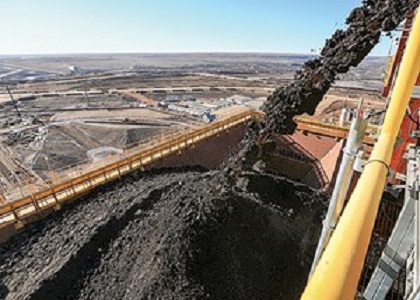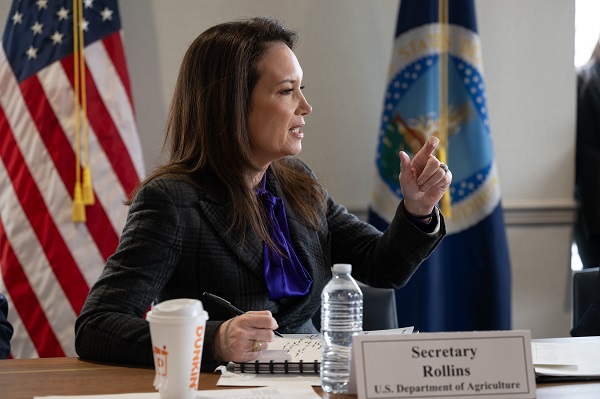Alberta
Alberta Engineering Technology Professionals paving the way for refugees to find work in their field

News Release from the Association of Science and Engineering Technology Professionals of Alberta
ASET waives fees for refugees, offers fast route into tech careers locally
Through two initiatives, the Association of Science and Engineering Technology Professionals of Alberta (ASET) is making it easier for engineering technology professionals who are refugees from war-torn countries to earn their professional designations and find work in their field without having to return to school.
Effective immediately, ASET is waiving all application fees for refugees seeking to become members and attain their designations (e.g. certified engineering technologist). These fees, which include the application fee, prior learning assessment and recognition (PLAR) fee, ASET professional practice exam fee, and certification exam fee, can cost up to almost $1,000 per member over time. ASET recognizes that many applicants who are refugees from countries in crisis are also suffering significant economic hardship.
ASET’s fee waiver for refugees reflects its overall commitment to welcoming and supporting newcomers. In 2016, it launched a program designed to offer foreign-trained and other engineering technology professionals a faster route to establishing careers: the competency-based assessment program. The first of its kind in Canada and pioneered by ASET, it enables them to gain purchase in their career fields without having to return to school full-time. ASET eliminated the Canadian work experience requirement, making it one of the few regulatory bodies in Alberta to do this.
After Russia invaded Crimea in 2014, single mother Mila Wagner made the difficult decision to leave her home and job in Ukraine and move to Alberta two years later with her three-year-old son, Nikita. When she arrived in Alberta in 2016, she discovered that her multiple engineering technology-related degrees from Ukraine did not translate in the Canadian employment market and no one would hire her. She had to take on menial work until she was able to earn a civil engineering technology diploma at Lethbridge College.
Had she known about ASET’s competency-based assessment program, she could have been fast-tracked into earning an ASET designation – subject to having the required application documentation – and ultimately working in a career-related job in half to a quarter of the time required to complete an additional engineering technology diploma in Canada.
While she praises the excellent civil engineering technology education that she received at Lethbridge College where the instructors are top-notch and go above and beyond to help their students, she wishes she’d known about the ASET program.

Mila and Nikita celebrating a milestone in their new home town
“If I could have been accredited through ASET from my previous schooling in Ukraine, I could have been positioned in a job in my field sooner,” said Wagner, now an ASET member. “I think the competency-based assessment program combined with application fee waiver will be a game changer for refugees from Ukraine and other countries.”
“With our application fee waiver for refugees now in place and our competency-based assessment program already established and proven to help newcomers, ASET is making it easier than ever for refugees with tech backgrounds to get on the career paths for which they were educated in their home countries,” said ASET CEO Barry Cavanaugh. “Alberta and Canada as a whole need more people with the technical knowledge and experience to contribute to our province and nation and we value what these newcomers bring.”

ASET CEO Barry Cavanaugh
How the competency-based assessment program works:
Foreign-trained professionals who have passed an ASET-approved English language proficiency test and are seeking certification and an ASET certified engineering technologist (CET) or certified technician designation (CTech) now undergo a competency assessment. This includes submitting academic credentials, work experience documents – such as CV, competency summary, job descriptions, and references – confirming their work experience locally and abroad. They then complete a professional practice exam that tests them on Alberta-specific legislation and professional ethics, and the ASET certification exam (if applying for the CET designation) that tests them on their technical competency.
In some cases, foreign-trained professionals are not able to access academic documents. For example, if they are refugees from a war zone, their academic institution may have been destroyed. ASET’s PLAR model allows foreign-trained professionals who are unable to produce academic transcripts to complete a work portfolio to demonstrate equivalency to the academic requirements. Skills and knowledge obtained outside of an academic program are evaluated for the purpose of recognizing professional competence, and certification exams test for the educational standard.

Happy times ahead!
About ASET
ASET is the professional self-regulatory organization for engineering technologists and technicians in Alberta. ASET currently represents over 16,000 members, including full-time technology students, recent graduates and fully certified members in 21 disciplines and more than 120 occupations across a multitude of industries.
Alberta
New gas reserves take Canada into global top 10

Left to right – Daniel Yergin, vice chairman S&P Global; Hon. Danielle Smith, Premier of Alberta; Hon. Susan B. Bourgeois., Louisiana Secretary of Economic Development; and Jim Fitterling, CEO Dow Inc.
New Alberta reserves study finds Alberta’s gas reserves have increased six-fold, moving Canada’s gas reserves into the top 10 globally.
Alberta has always been a giant when it comes to natural gas, but after looking carefully at the Montney, Duvernay and the Deep Basin, new data has identified that the total gas resource in ground exceeds 1,360 trillion cubic feet (TCF). Of this, 130TCF is proved and recoverable gas reserves. For comparison, the latest U.S. government reserve number, using comparable methodologies, for Texas natural gas is 170TCF.
|
Gas (TCF) |
Oil (billion barrels) |
|
| Current Resource in Ground* |
1360 |
1820 |
| Previous AER Reserve number |
24 |
159.4 |
| 2025 McDaniel Proved Reserve study |
130** |
167*** |
| EIA Texas Reserves (2023) |
170 |
20 |
| * resource in ground number reflects an estimate of total resource in place.
** with proved and probable 144TCF. *** oil reserve studies for all basins not yet complete. |
||
Adding these new gas reserves to other provinces’ reserves sees Canada’s overall gas number more than double and results in Canada’s ranking moving from number 15 to number nine globally.
When it comes to oil reserves, Alberta remains a titan with a total resource in ground number of 1.8 trillion barrels. Oilsands proven reserves are more than 165 billion recoverable barrels and there is other growth. For example, new opportunities like the Clearwater basin which has almost two billion barrels of new reserves. For comparison, Texas’ proved oil reserves sit at 20 billion barrels.
Alberta’s global ranking for oil has not changed, however the increase of seven billion additional proved barrels does result in extending the province’s total years of overall oil supply to 137 years.
“Alberta’s responsible energy sector has embraced technology and innovation, and these advancements have allowed us to unlock material gas reserves that were previously not accounted for. While other jurisdictions could face inventory concerns in the future, Alberta’s reserves will be essential for North America to continue accessing affordable energy.”
“This announcement reinforces that Alberta has the reserves needed to enhance long-term energy security for our trading partners. With vast amounts of gas, oil and liquids, Alberta’s energy sector is ready and willing to work with our U.S. partners to achieve global energy security.”
The study to review Alberta’s natural gas and oil reserves was commissioned by the Alberta Energy Regulator and was conducted by McDaniel and Associates Consultants. McDaniel is still completing this work and a final number for all fields and growth areas will be completed in the coming weeks.
“The continued expansion of Alberta’s reserves offers immense potential for long-term energy security, ensuring a reliable source of energy to support both domestic needs and international markets.”
Alberta’s government is working closely with industry to determine all options for egress to market in support of our aspiration to double Alberta’s oil and gas production.
Faced with uncertainty around trade and security, Alberta’s government remains focused on diplomacy and continuing to build a resilient and diversified economy that is better positioned to withstand external shocks and ensure long-term prosperity.
Background
- Reserves are the most accurate measure of a jurisdiction’s future oil and gas potential. McDaniel and the Alberta Energy Regulator use the Canadian Oil and Gas Evaluation Handbook methodology to perform reserve studies.
- Reserves are estimated volumes of hydrocarbon resources that analysis of geologic and engineering data demonstrates with reasonable certainty are recoverable under existing economic and operating conditions. Reserves estimates change from year to year because of:
- price and cost changes
- new discoveries
- thorough appraisals of existing fields
- existing reserves production
- new and improved production techniques and technologies
Quick facts
- In 2023, Alberta produced 10.9 billion cubic feet per day (bcf/d) of natural gas. This was 61 per cent of Canadian natural gas production in 2023.
- Alberta is also the largest supplier of natural gas to the U.S. In 2023, Alberta exported 4.54 bcf/d to the U.S.
- Alberta oil directly supports more than 50 U.S.-based refineries with direct investment in more than 20 U.S. states, and is essential to affordability, growth, economic prosperity and energy security in the U.S.
- The U.S. Midwest continues to be the largest market for Canadian crude oil, followed by the U.S. Gulf Coast.
- As 2025 began, U.S. imports of crude oil from Canada reached a weekly record 4.42 million barrels per day, with the majority supplied by Alberta.
Alberta
Alberta to unlock new market potential

Alberta’s government has announced new steps to meaningfully act on the province’s ownership of its oil and gas resources and maximize resource revenue.
Alberta’s government will now collect bitumen royalties in-kind (BRIK) in addition to conventional royalties in-kind (CORIK), allowing the province to obtain the top price for oil resources and positioning Alberta as a potentially significant player in the global oil market.
The Alberta Petroleum Marketing Commission (APMC), Alberta’s commercial oil and gas agency, will now be able to combine conventional and bitumen royalty barrels to bring to market significant petroleum volumes that will spur private sector investments. This will give government the ability to seek new deals on Alberta’s energy resources internationally, making the province one of the largest global heavy oil market players and maximizing the return for Albertans.
On March 10, 2025, Premier Danielle Smith met with a global oil and petrochemical multinational to discuss a first-of-its-kind potential transaction that would see the overseas transport and sale of approximately two million barrels per month of Government of Alberta owned heavy oil via the APMC.
“This program gives the province greater say in where we sell our oil. Receiving bitumen royalties in-kind is another tool in our investment toolbox and will give us the opportunity to maximize our resource potential, become one of the most significant players in the heavy oil market and garner more value for Albertans.”
“Alberta and Canada have benefited greatly from the innovation and investment of our partners, the companies driving our energy industry. This move will allow us to promote increased pipeline capacity and grow our global markets, which is good for Albertans, for industry, and for global energy security.”
Given the significant volume of conventional and bitumen royalty barrels that will become available over time, the APMC will seek agreements with other jurisdictions and industry players to ensure Albertans benefit to the greatest extent possible from the ownership of their natural resources. This will help improve and diversify markets. The transportation of these barrels will help incentivize pipeline capacity growth in support of Alberta’s aspiration to double its oil and gas production.
“APMC will work diligently to seek commercially prudent deals that make sense for Albertans and the Alberta energy industry. The opportunity exists to find transactions that will directly and indirectly secure extra value for Albertans, and the experienced team at APMC is committed to doing just that.”
Faced with uncertainty around trade and security, Alberta’s government remains focused on diplomacy and continuing to build a resilient and diversified economy that is better positioned to withstand external shocks and ensure long-term prosperity.
-

 Crime2 days ago
Crime2 days agoChinese Narco Suspect Caught in Private Meeting with Trudeau, Investigated by DEA, Linked to Panama, Caribbean, Mexico – Police Sources
-

 Bjorn Lomborg23 hours ago
Bjorn Lomborg23 hours agoDespite what activists say, the planet is not on fire
-

 National2 days ago
National2 days agoTrudeau has made 104 appointments, including 9 senators since announcing resignation: records
-

 Business1 day ago
Business1 day ago38 state AGs, DoJ announce plan to end Google’s search monopoly
-

 Business1 day ago
Business1 day agoDoug Ford needs to ditch the net-zero pipedreams
-

 Alberta2 days ago
Alberta2 days agoAlberta to unlock new market potential
-

 Business2 days ago
Business2 days agoPoll shows eight-in-10 Canadians oppose MP pay raise
-

 Business2 days ago
Business2 days agoElon Musk says X targeted by “massive cyberattack” originating in Ukraine


